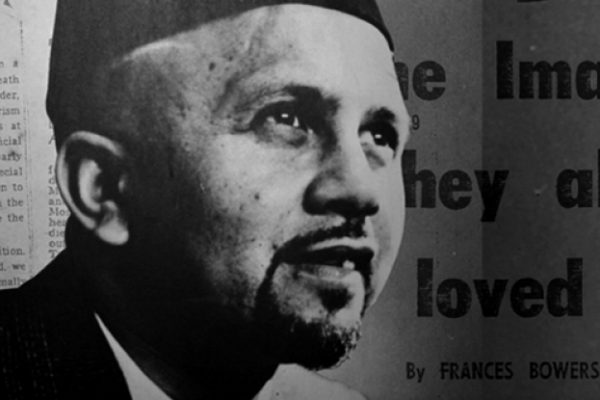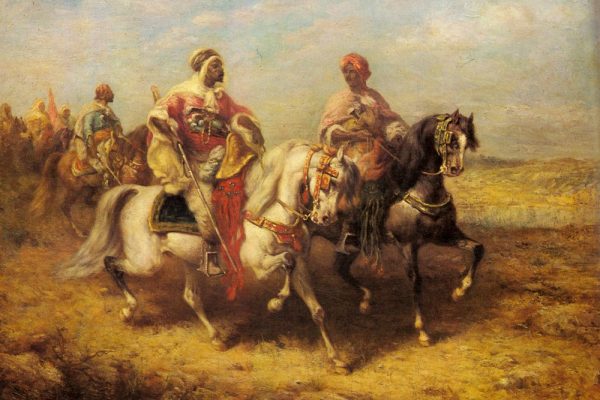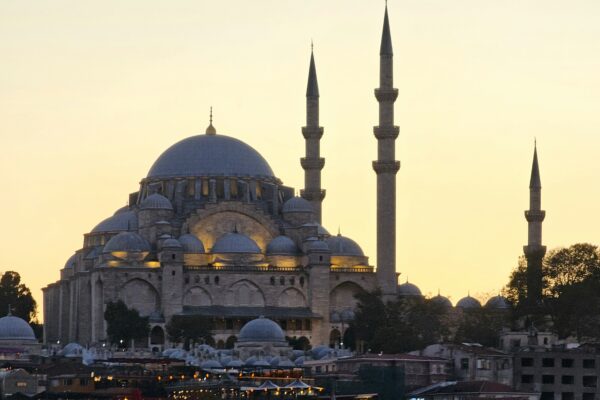The Qu’ran in surah al-fajr calls upon us to reflect upon past civilizations such as A’ad, Thamud, and Egypt. It notes that these societies contained unique, unrivaled architectural features which displayed their vast materialistic wealth. Yet, despite the materialistic splendors of these civilizations, such grandeur did not earn the approval of God, because the social system of the respective societies did not meet the more important spiritual objectives of feeding the poor and overcoming inequities.
The final sermon is the last public speech made by the Prophet Muhammad; he makes the following statement:
“Allah has forbidden you to take usury; therefore, all interest obligations shall henceforth be waived. Your capital, however, is yours to keep. You will neither inflict nor suffer any inequity…”
We see a condemnation of the practice of usury and racism as, later in the speech, he states that, “a white has no superiority over a black.”
Institutional Racism & Predatory Lending
the Qu’ran demonstrates the spiritual defective social system that results in the production and maintenance of the ghetto and reveals the obligation upon us all to continue to work for a more just and equitable society.
The recent subprime mortgage crisis demonstrates one of the consequences of the failure to internalize the message of the last sermon. Bankers partook in predatory lending, in which they imposed unjust and abusive loan stipulations upon borrowers and also utilized deceptive and coercive means to lure borrowers to accept high interest loans, which they were unable to afford; subsequently, the bankers would profit from foreclosures. Banks disproportionately targeted the African-American community with these unethical practices, and a report reveals that even African-Americans who qualified for better loans were lured into taking subprime loans and were charged a significantly higher interest rate.
Loan officers are paid based upon the amount of loans that are approved, regardless of whether those lended the money were able to pay it back in the long term; thus, subprime loans became an easy way to make money. In a sworn testimony, a former Wells Fargo employee testified to forming relationships with black churches and community groups in efforts to profit from subprime mortgages. A report revealed that Wells Fargo employees referred to African-Americans as “mud people” and gleefully called their practices “ghetto loans.”
This predatory lending had a disastrous impact on the black community in Baltimore. Of the properties that Wells Fargo foreclosed on between 2005 and 2008, leaving numerous homes vacant, 71% were properties in black neighborhoods. Black households have a median income that is 60% less than white households. From 2005 to 2009, the median black household wealth declined from $12,124 to $5,677, while white families now have 20 times the purchasing power of black families.
Despite its rhetoric of a post-racial society, data in a study from Brandeis University’s Institute on Assets and Social Policy found that the income gap between blacks and whites has tripled over the past 25 years. The income gap between blacks and whites is intergenerational; whites are five times more likely to inherit wealth than blacks, and these inheritances are, on average, 10 times larger than inheritances bequeathed to blacks.
Contrary to the Prophet Muhammad’s message in his final sermon, we can see that whites have structurally solidified their financial superiority in the socio-economic aspect of America, not only due to a history of discriminatory social policies, such as Jim Crow laws, but also from recent discriminatory practices, such as those manifested in the subprime mortgage crisis, which reversed black civil rights gains, plummeted black wealth, and inflicted an entire population of people with inequity.
The Rivalry in Worldly Increase & the Prison Industrial Complex
“Mutual rivalry in seeking worldly increase diverts you from God.” Quran 102:1
European colonialism was facilitated by the post-enlightenment materialistic view of Europeans, trapped in a materialistic mindset that they sought to expand for the accumulation of monetary gain, which was their only concern. Their pursuit of worldly wealth distracted them from treating Native Americans, Australian Aboriginals, and Africans ethically. Having piled up much worldly gain from a history of discriminatory policies which barred natives from equitable participation in the free market, they are free to pass such inheritance to descendants, thus enabling a transgenerational system of exploitation with poverty more significantly impacting blacks. The vast majority of black prison inmates earned less than one thousand dollars a month and grew up in a single-parent household that received welfare. A significant portion of inmates were unemployed when arrested.
When manufacturing jobs that had been common in inner cities were outsourced overseas, the economy of the metropolis transitioned from manufacturing to knowledge-based services. As a result, Wacquant notes, “For the first time in American history, the African-American was no longer needed in the economic system of the metropolis.” Wacquant further states that the system in place had “consign[ed] the vast majority of uneducated blacks to economic redundancy.”
But the “black question”—or, what was to be done with this disposable ghetto population who turn to drug-trafficking and crime, and functioned as a “menace to society”?—was where the prison system came into place. According to Wacquant, prison functions as “a human warehouse wherein are discarded those segments of urban society deemed too disreputable, derelict, and dangerous.” The state of Maryland recently approved a $30 million youth jail. This funding could have instead been utilized to repair damages from the discriminatory subprime mortgage crisis and revitalize the black community through job training and opportunities for social advancement; however, prisons are also becoming a profitable enterprise with companies benefitting from cheap prison labor, which brings in more wealth.
A Spiritually Defective Social System
In the imagination of many people, ghettos are isolated enclaves of poverty that have high levels of gun crime, a strong illegal drug economy, and a high concentration of single-parent homes. Ghettos are avoided at all costs by those who live in mainstream American society, for ghettos host a variety of deadly and self-destructive behaviors. Yet, the aforementioned insights from the Qu’ran demonstrate the spiritual defective social system that results in the production and maintenance of the ghetto and reveals the obligation upon us all to continue to work for a more just and equitable society.
Ignoring the social problems that have been caused by discriminatory policies or practices will only allow the problem to worsen, which will eventually affect even those who are not judged unfairly based on their race. We must work together to identify and combat the root of continuing racism in order to build a stronger, more cohesive society that functions well and does not have any single group at the mercy of mainstream society. Unless we take action against these problems, they will surely continue for decades or even centuries to come
About the author: Hakeem Muhammad is currently a college student at the University of West Georgia. He currently volunteers for MuslimARC and plans to study Law and Islamic theology in the future. He blogs at hakeemmuhammad.com
Sources:
- http://thinkprogress.org/economy/2015/04/28/3651951/baltimore-freddie-gray-economic/
- http://www.washingtonpost.com/business/economy/former-wells-fargo-loan-officer-testifies-in-baltimore-mortgage-lawsuit/2012/06/12/gJQA6EGtXV_story.html
- http://loicwacquant.net/assets/Papers/DEADLYSYMBIOSISPRISONGHETTO.pdf





